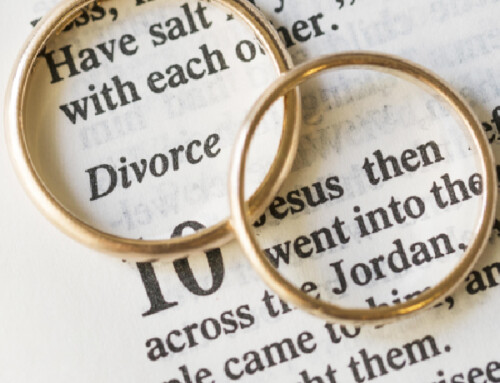The division of assets on the breakdown of a marriage can be very difficult, as the funds which once comfortably managed to support one family unit, now have to support two. This can often leave families stretched when two separate units are taken into consideration.
While many assets can be taken into account, one which a client often worries about is their pension interests. A pension can, collectively, be the highest valued asset that someone will own in their lifetime. As such, careful consideration must be given to what extent a pension can be regarded as matrimonial property for divorce and separation purposes. Although a pension cannot be immediately cashed in and is held in one party’s sole name, it is in a divorce treated as an asset that can be divided between the parties.
Getting Back to Basics
What is matrimonial property?
This consists of all property and assets belonging to the parties or either of them (in either joint or individual names) at the relevant date. The relevant date is the date of separation or the date a divorce action was served on an individual party. A pension, will also be regarded as matrimonial property.
How much of a pension is matrimonial property?
It is essential to determine how much of the pension valuation falls within the period of marriage. The reason for doing so is due to the fact that some individuals may have made huge contributions to their pension pots for many years prior to entering their marriage. It would be extremely unfair to include pre-marriage contributions to matrimonial property. The law sets out a calculation known as an “Apportionment Calculation” to determine how much of the pension should be regarded as matrimonial property.
Pensions are unique when it comes to matrimonial property. Like many other assets or items of matrimonial property, all pension interests held by the parties would need to be correctly identified. Before negotiations can begin in relation to pension sharing, you will need to obtain a Cash Equivalent Transfer Value (CETV) from your pension provider from the date of your marriage to the relevant date.
Once you have ascertained the value of your pension, we will then be in a position to consider what your spouse’s claim is likely to be and how this claim can be settled.
Pension Sharing
It should not be forgotten that pensions are usually one of a number of assets that will fall within the pot of matrimonial property for division on separation. If one party has a greater proportion of the net value of matrimonial property after separation, it may come down to fair sharing and one party will make a balancing payment to the other. Such a balancing payment can be carried out by way of capital sum, transfers of property, or indeed a pension share.
A pension share involves a specified sum or an agreed percentage being removed from one party’s pension and credited to a pension policy for the other spouse. A Pension Share can be implemented by way of agreement through a formal Minute of Agreement or, if necessary, through Court Order.
Get in touch
Do you have further questions about your pension sharing requirements on divorce? To find out more about how we can assist you in relation to Pensions on Divorce or Separation please get in touch with a member of our Family Law team.







